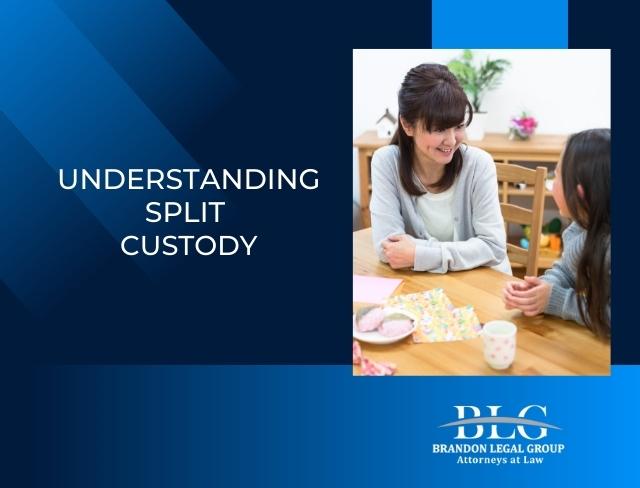The Complexity of Child Custody
When parents part ways, one of the most heart-wrenching decisions revolves around the well-being of their children. The term “split custody” often surfaces during these discussions. But what does it truly entail, and when is it the right option?
What is Split Custody?
At its core, split custody is a type of custody arrangement where siblings are separated, with one or more children living with each parent. This type of arrangement stands in contrast to joint custody (where parents share decision-making rights), sole custody (one parent has both physical and legal custody), and shared custody (where children divide their time between both parents).
Before diving deep, it’s essential to understand why split custody even comes into the picture. Relationships can be challenging, and when children are involved, decisions become even more critical. Split custody emerges as a unique solution in certain circumstances, providing an alternative that might be in the best interests of all parties involved.
The Rationale Behind Split Custody
Split custody isn’t usually the court’s first choice. It emerges as an option under unique circumstances. Perhaps one child has specific needs better addressed by one parent, or the siblings might have a strained relationship. The paramount concern is always in the child’s best interest.
Factors Courts Consider When Deciding on Split Custody
When the courts are presented with a request for split custody, their primary concern is always the best interests of the children. But what does this mean in practical terms? Here are some of the critical factors that judges often consider:
- Child’s Preferences: Depending on the age and maturity of the child, courts may give weight to the child’s own preferences regarding which parent they wish to live with.
- Age and Needs of the Children: The age and specific needs of each child play a significant role. For instance, a teenager might have different educational or social needs than a younger child.
- Parental Abilities: Each parent’s ability to provide a stable home, cater to the child’s educational needs, offer emotional support, and make sound decisions for the child’s welfare is closely scrutinized.
- Geographical Proximity: The distance between the parents’ residences can be a factor. If the parents live far apart, it may not be feasible for children to maintain close relationships with both.
- Sibling Relationships: Courts consider the importance of maintaining sibling bonds. If split custody would severely disrupt a close sibling relationship, it might not be deemed in the child’s best interest.
- Health and Safety: The health, safety, and general welfare of the children are paramount. If one parent poses any risk, they are less likely to be favored in a split custody arrangement.
- History of Domestic Violence or Substance Abuse: Any history of violence, abuse, or addiction can significantly impact a parent’s chances of obtaining custody.
- Willingness to Cooperate: The court looks favorably upon parents who demonstrate a willingness to communicate and cooperate with the other parent for the sake of their children.
It’s important to remember that the court’s decision will be a combination of these factors and any other relevant circumstances that are unique to the family’s situation. The overarching aim is to ensure the emotional, physical, and psychological well-being of the children involved.
The Pros and Cons of Split Custody
Like every custody arrangement, split custody has its advantages and disadvantages. Split custody can provide individualized care tailored to each child’s unique needs. It might also respect older children’s wishes to live with a specific parent. However, the downside includes potential emotional distress from separating siblings and the logistical challenges of managing family events or gatherings.
Real-World Scenarios
The following is a DRAMATIZATION AND IS NOT AN ACTUAL EVENT: Imagine Jenny and Mark, who have three children. Their eldest son shares a tight bond with Mark and wishes to stay with him due to shared interests and proximity to his high school. Their younger twin daughters, having spent more time with Jenny and being closer to her side of the family, opt to live with her. In this scenario, split custody appears to respect individual preferences, ensuring each child’s emotional well-being.
When Should You Consider Split Custody?
It’s crucial to evaluate your family’s dynamics objectively. If your children have vastly different needs or explicit preferences, split custody might be worth considering. Remember, it’s not about convenience for the parents but the well-being of the children.
Seeking Legal Guidance
Navigating child custody is a complex endeavor. The emotional, logistical, and legal intricacies demand expertise. An experienced custody attorney not only understands the legal landscape but can also offer guidance tailored to your family’s unique situation.
FAQs
Is split custody a common arrangement?
While not as common as joint or shared custody, split custody is chosen when it aligns best with a child’s well-being and family circumstances.
How does split custody impact child support?
Child support is determined based on various factors, including the needs of the child and parental income. In split custody, support might be calculated based on the needs of the children with each parent, considering the incomes of both parents.
Can split custody arrangements be modified?
Yes, like other custody arrangements, split custody can be revisited, especially if there’s a significant change in circumstances that affects the child’s best interest.
Conclusion
Split custody is a testament to the fact that no one-size-fits-all solution exists in the realm of child custody. It underscores the need to assess every family’s unique dynamics, always prioritizing the children’s well-being. If you’re on the precipice of making such pivotal decisions, professional guidance can be invaluable.
Considering split custody or facing another custody-related dilemma? Reach out to our dedicated team of legal professionals for insights, guidance, and advocacy tailored to your unique situation.
